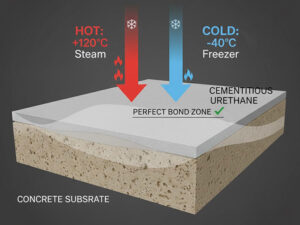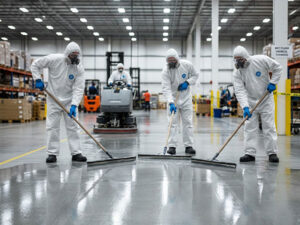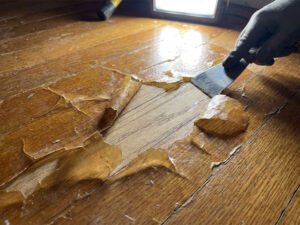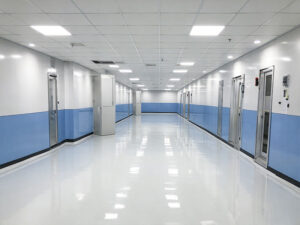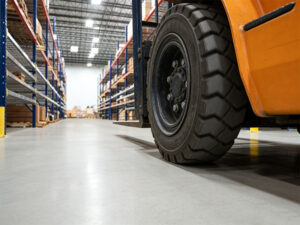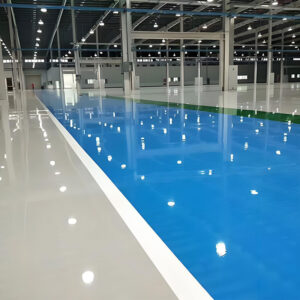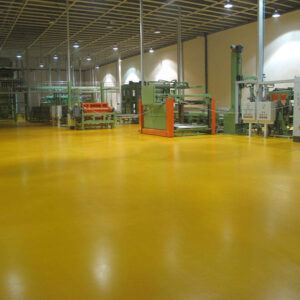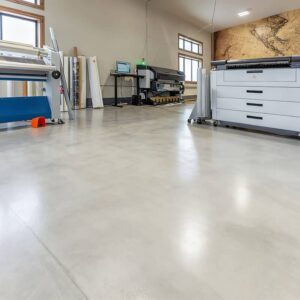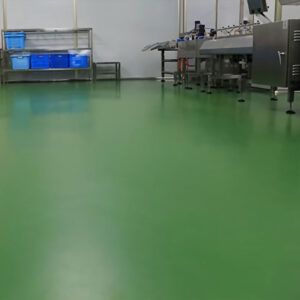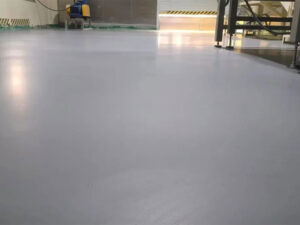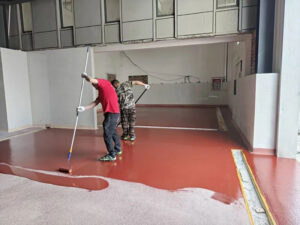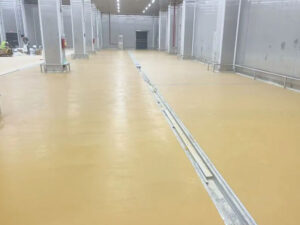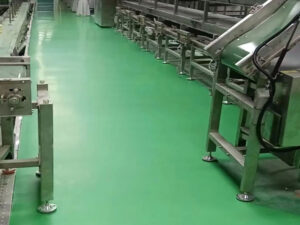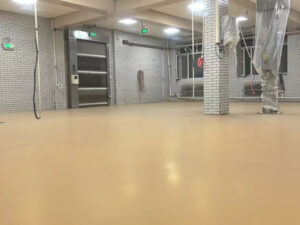In the seafood and fisheries processing industry, flooring materials for production facilities have always been a key concern for businesses. An exceptional seafood plant floor not only significantly enhances the overall environmental quality of the facility but also plays a critical role in ensuring food-safe flooring and improving operational efficiency.
In recent years, with advancements in technology and industry development, waterborne polyurethane mortar flooring has emerged as a top choice for seafood processing plants due to its superior performance, surpassing many traditional industrial flooring options.
Seafood and fisheries processing facilities, as critical sites for food production, impose stringent requirements on food-grade flooring.
First and foremost, the flooring must possess excellent waterproof flooring properties. Since seafood products contain high levels of moisture and salt, inadequate waterproofing can lead to damp, slippery surfaces, compromising worker safety and potentially contaminating food products.
Additionally, the flooring must demonstrate outstanding chemical-resistant flooring capabilities. Chemicals such as cleaning agents and disinfectants used during seafood processing can degrade flooring materials, making it essential for the flooring to withstand such corrosive agents.
In coastal regions or facilities near the ocean, where seawater is introduced for processes like aquaculture or processing, the flooring is particularly vulnerable to saltwater-resistant flooring challenges from chloride ions and other seawater chemicals.
Seawater contains various electrolytes, with chlorides making up a significant portion of the salt content, along with dissolved oxygen. These elements create a highly corrosive environment for seafood factory flooring. When seawater comes into contact with flooring, a series of physical, chemical, and electrochemical reactions occur, leading to material degradation and structural damage.
JINYU PAINT® Water based Polyurethane Flooring is specifically engineered to meet these challenges. Made primarily from castor oil (modified) plant-based polyols through advanced processing techniques, it delivers exceptional non-slip flooring, anti-microbial flooring heavy-duty flooring performance. Compared to conventional epoxy flooring for seafood plants, waterborne polyurethane flooring is more environmentally friendly, maintaining cleanliness and aesthetics over long-term use. With extremely low or even zero VOC emissions, it meets nearly all client demands for FDA-compliant flooring, hygienic flooring, and long-lasting industrial floors. For a detailed breakdown of performance differences, see our Polyurethane vs Epoxy Flooring.
In seafood and fish processing plants, JINYU PAINT® Water based Polyurethane Flooring demonstrates remarkable effectiveness. It effectively blocks moisture and salt penetration, keeping floors dry and hygienic to ensure sanitary flooring standards. Its outstanding abrasion-resistant flooring allows it to endure heavy machinery and frequent vehicle traffic, extending the floor’s lifespan. Additionally, its slip-resistant flooring properties significantly enhance worker safety.
Another advantage is the ease of installation and maintenance. The flooring can be ready for foot traffic within 24 hours. For upkeep, only periodic cleaning with water or neutral detergents is required—eliminating the need for specialized maintenance products or equipment, thereby reducing long-term costs.
As the seafood and fisheries industry continues to evolve, more businesses are prioritizing food processing facility flooring hygiene and safety. Water based polyurethane flooring, high-performance, sustainable solution, is becoming an indispensable part of modern seafood factory floors, contributing to the industry’s sustainable development.
A modern food-grade flooring facility aligns with the demands of contemporary industry standards, and choosing an eco-friendly, durable flooring system is a necessity for such facilities. JINYU PAINT® remains committed to innovation and sustainability, continuously introducing advanced materials and applications to support high-quality, sustainable development in the food-safe industrial flooring sector.

